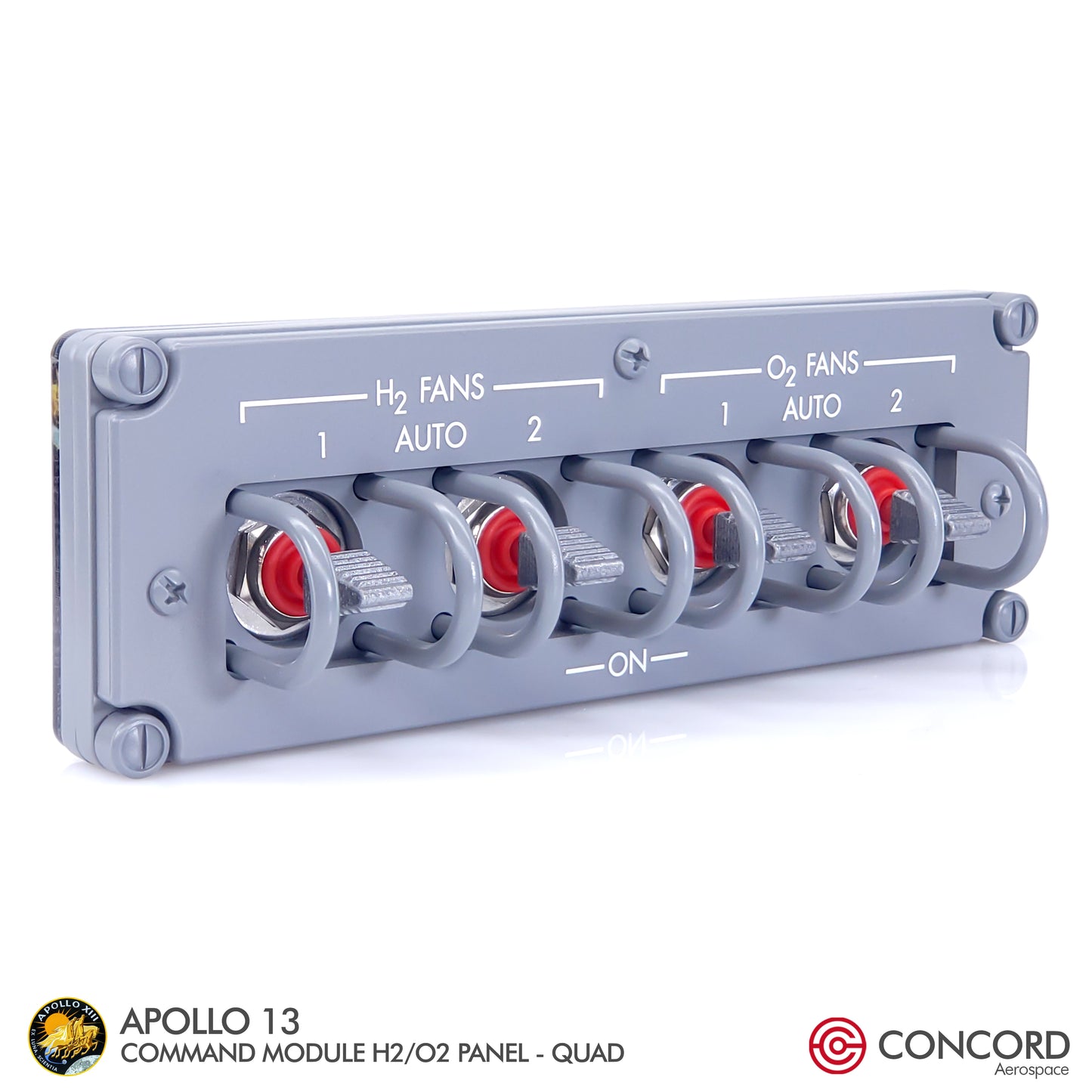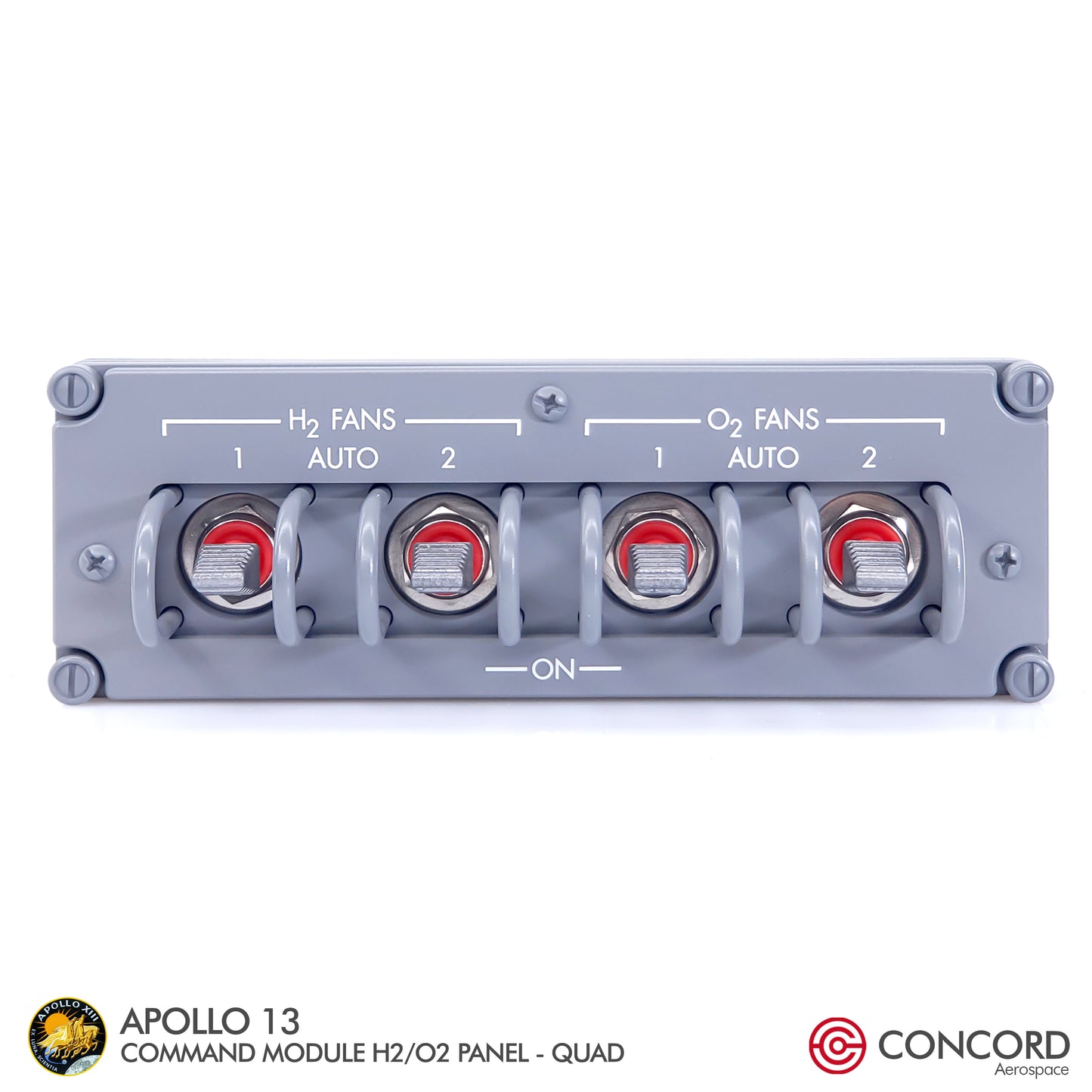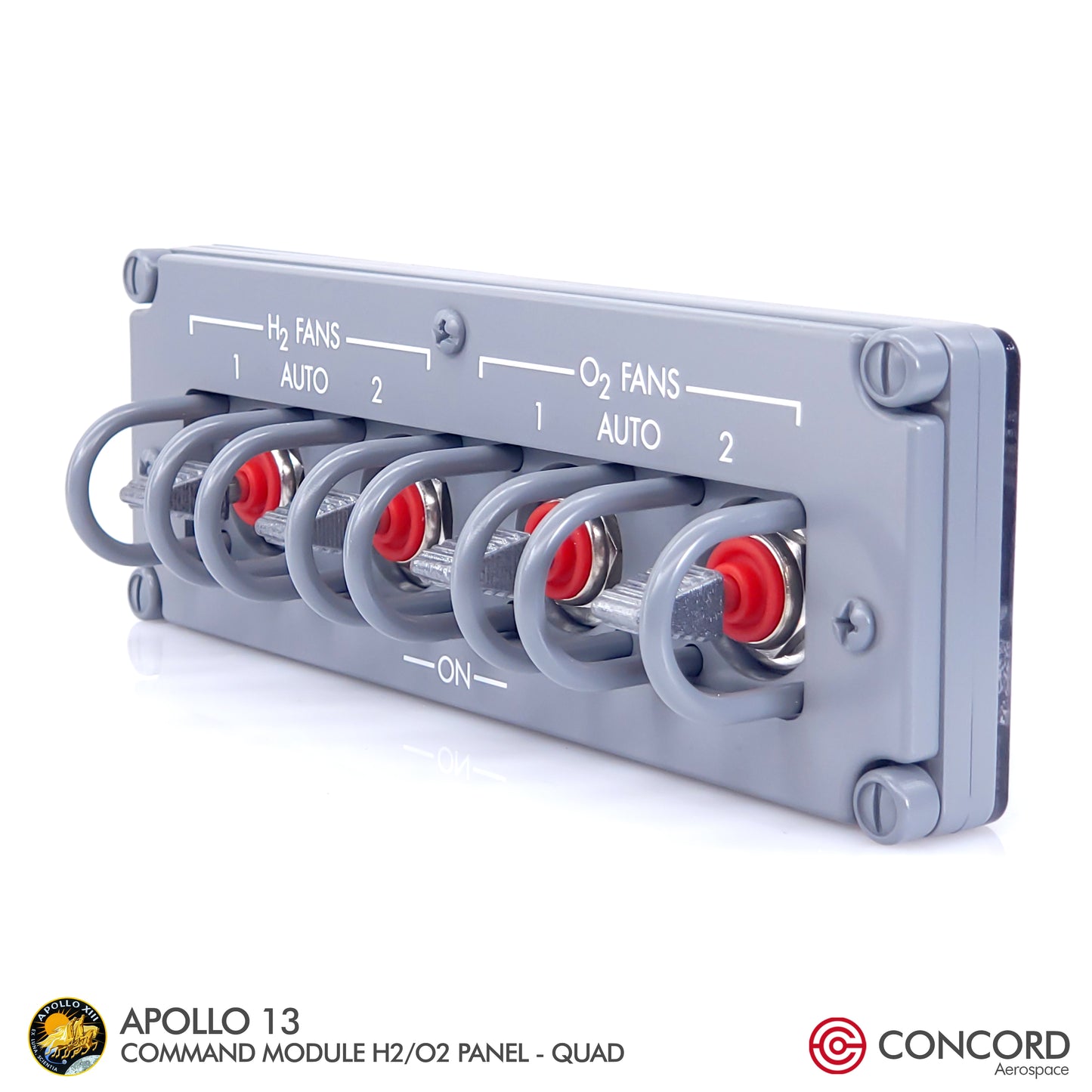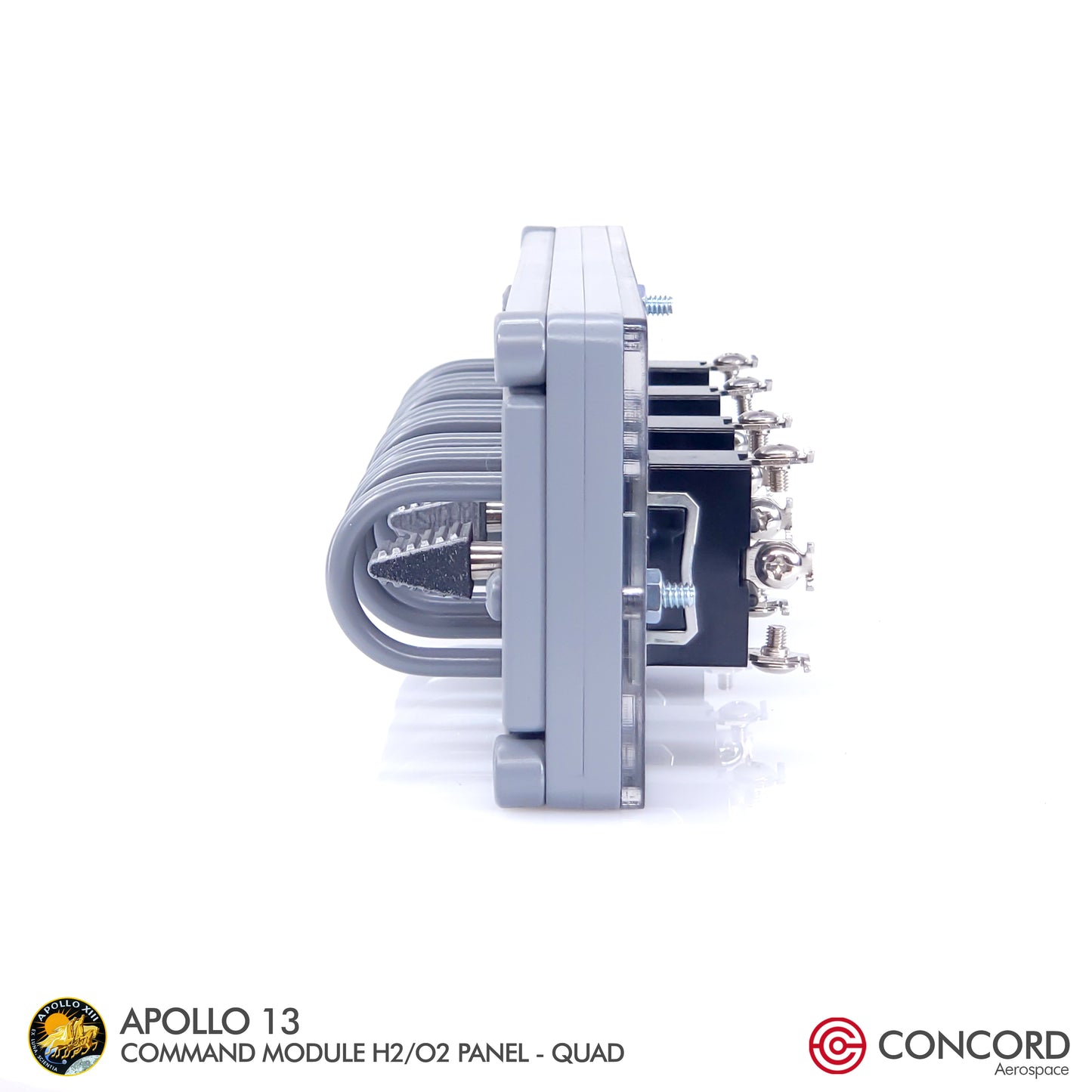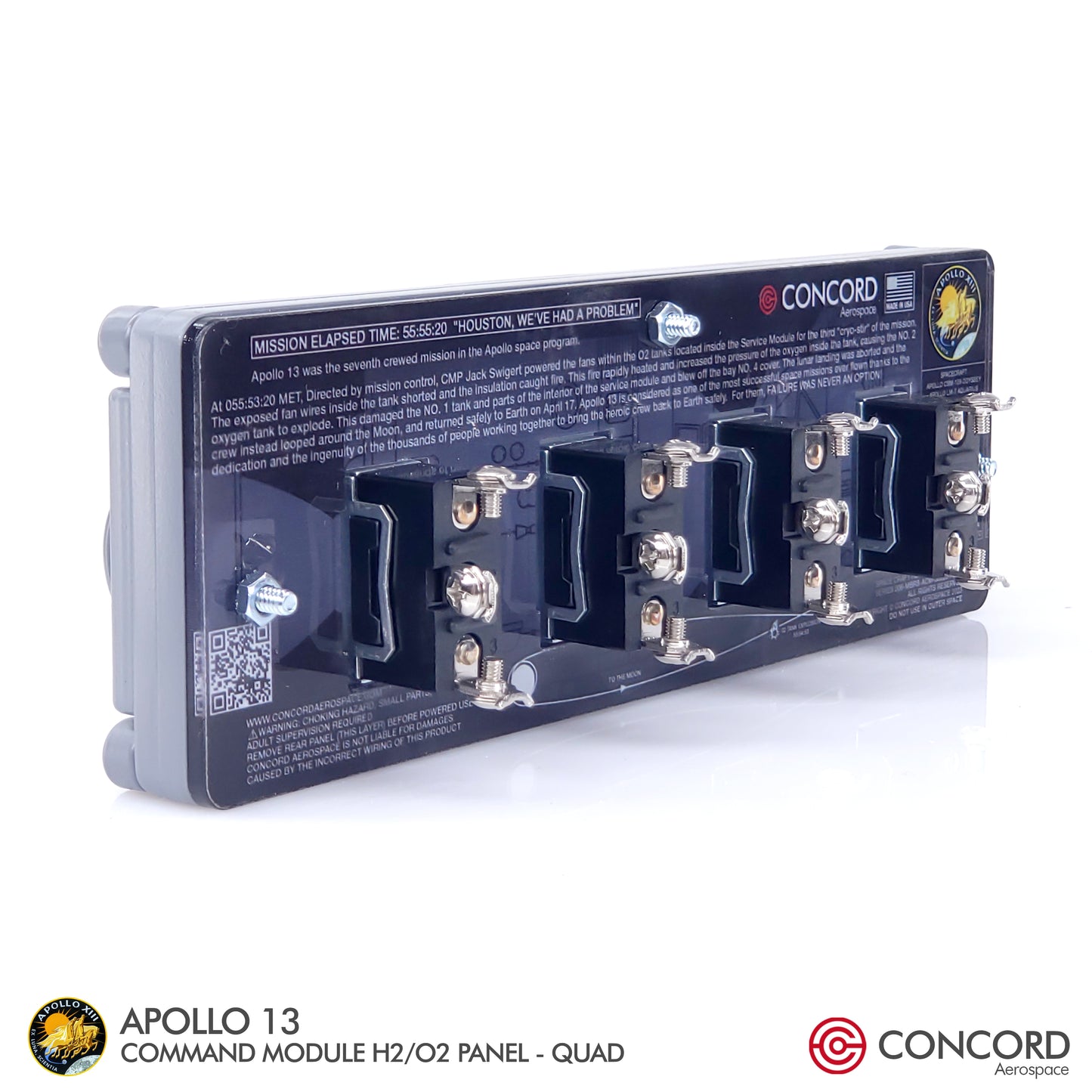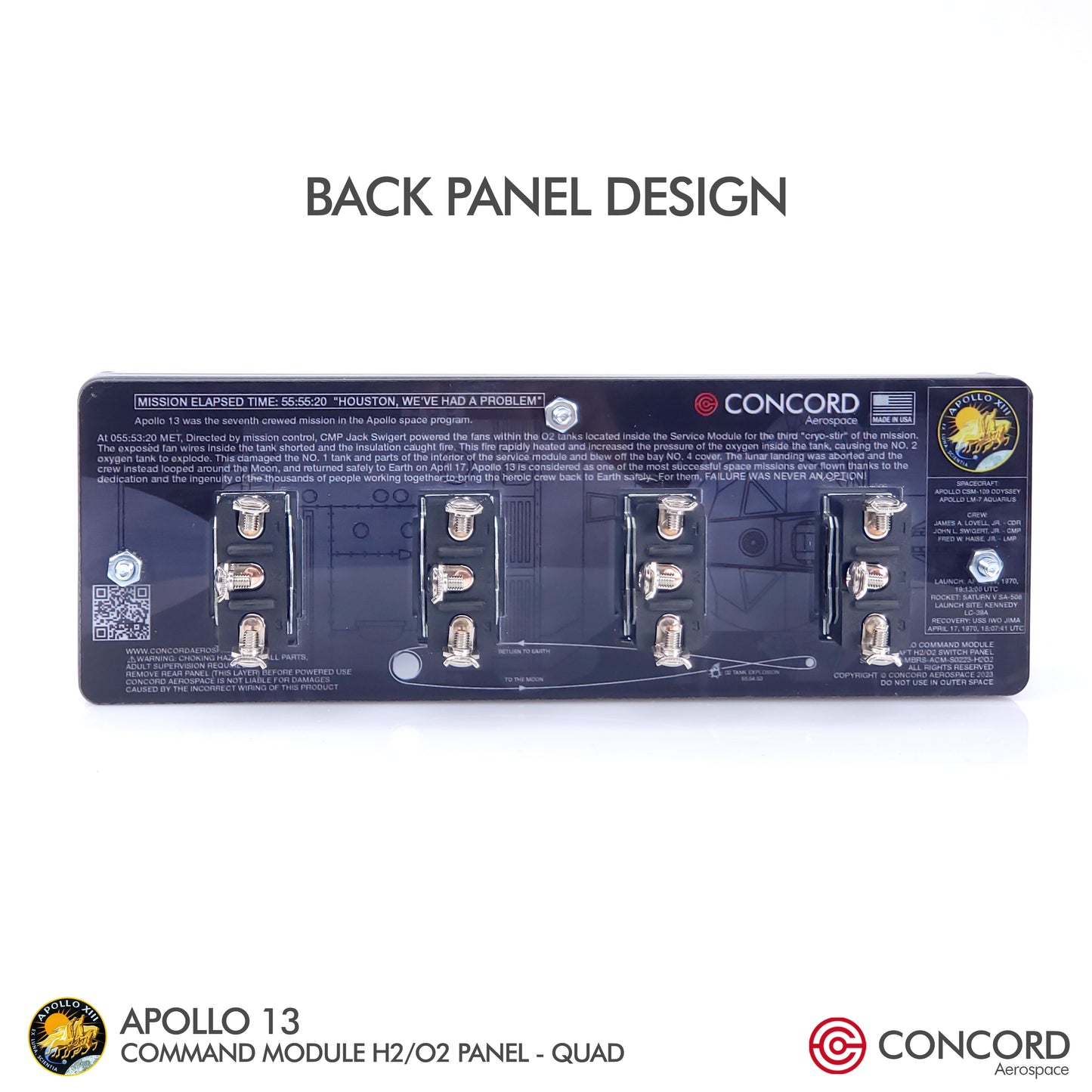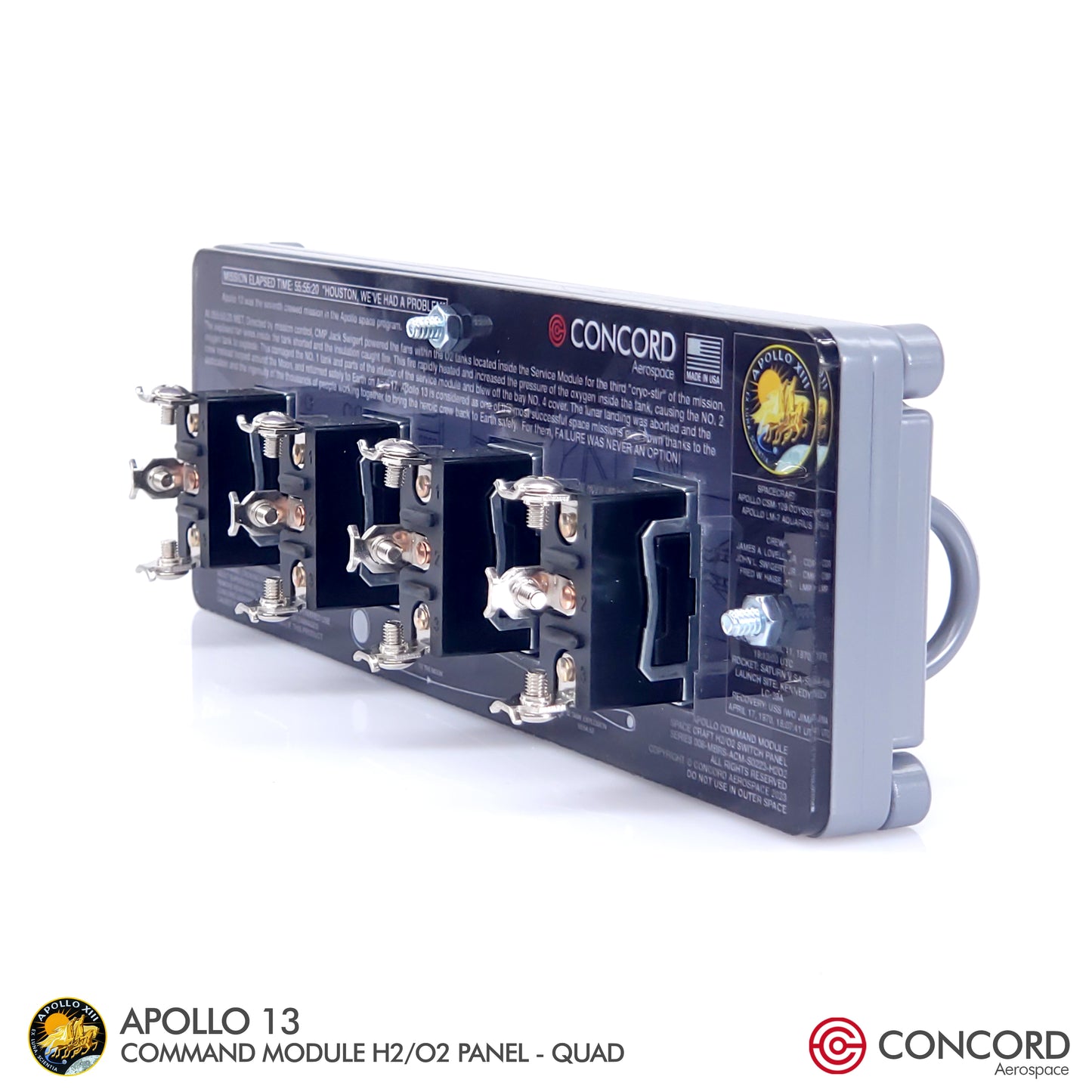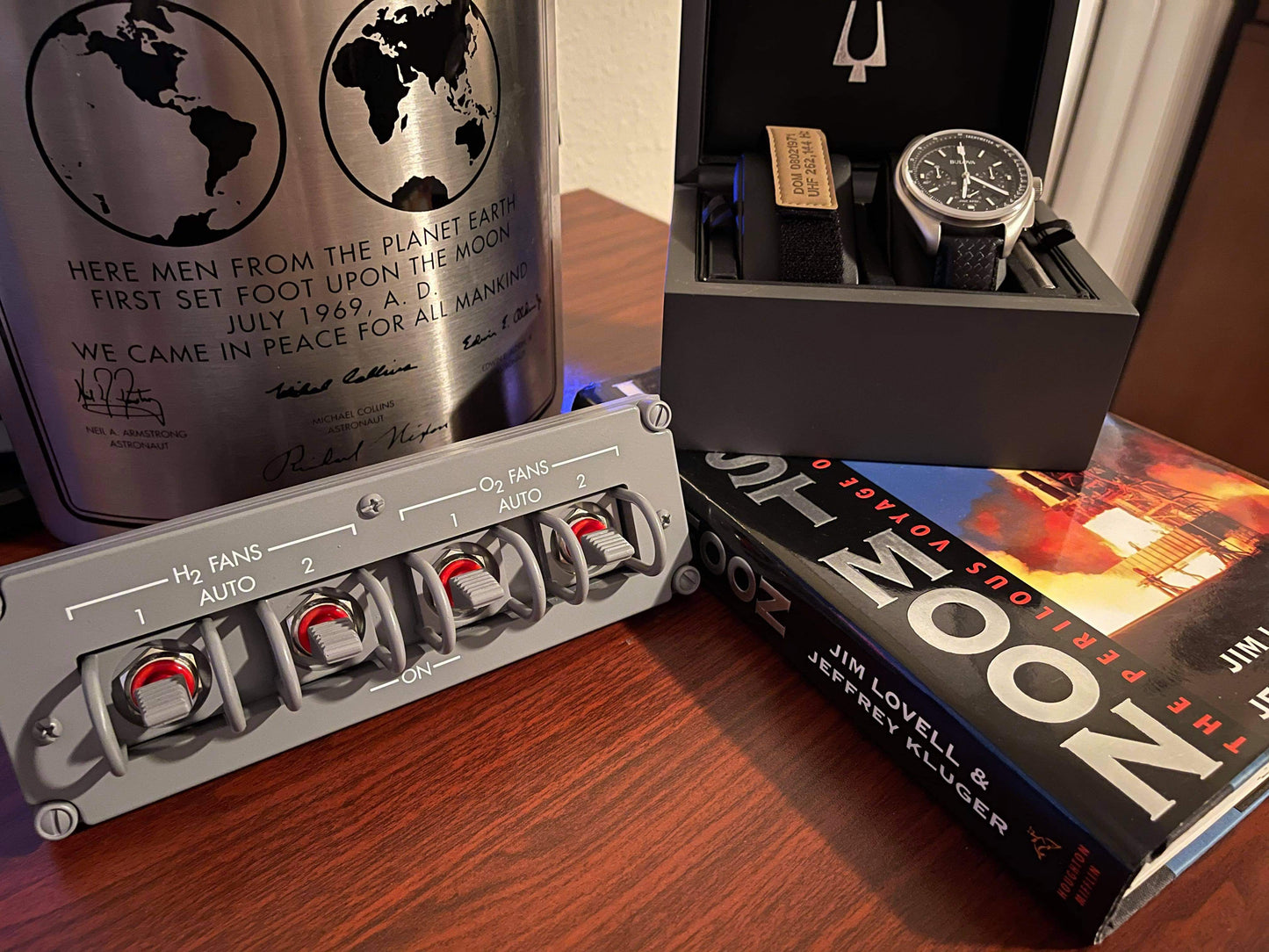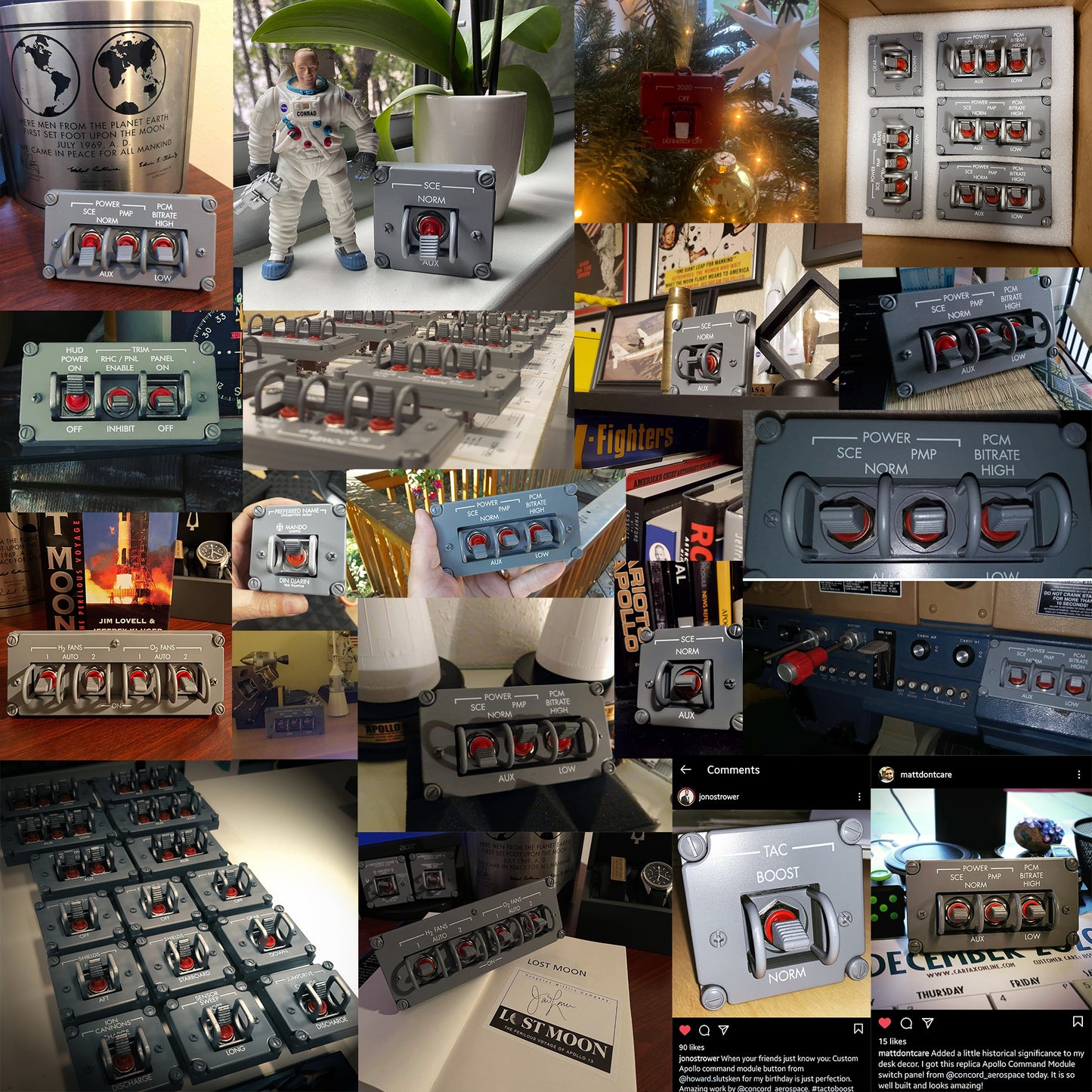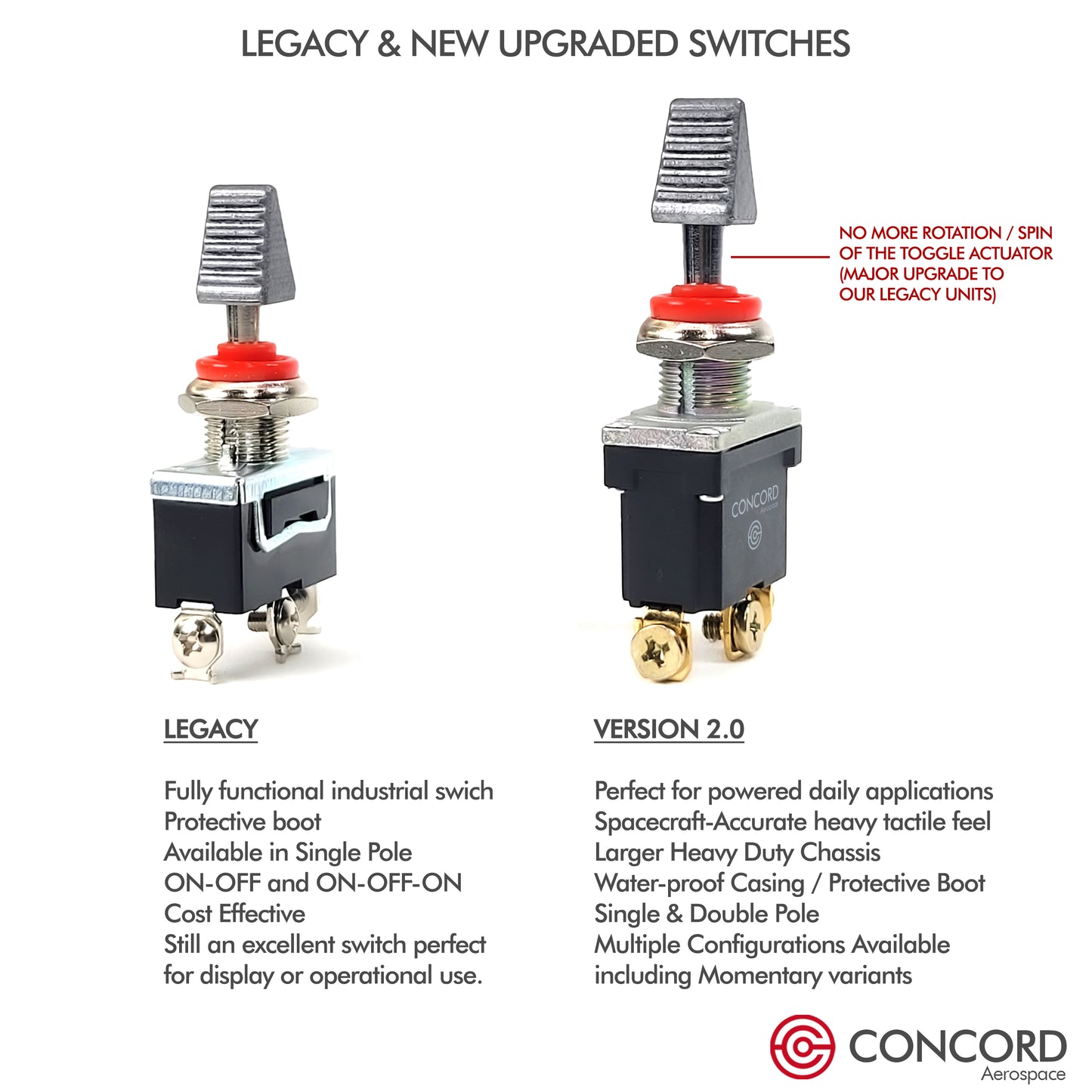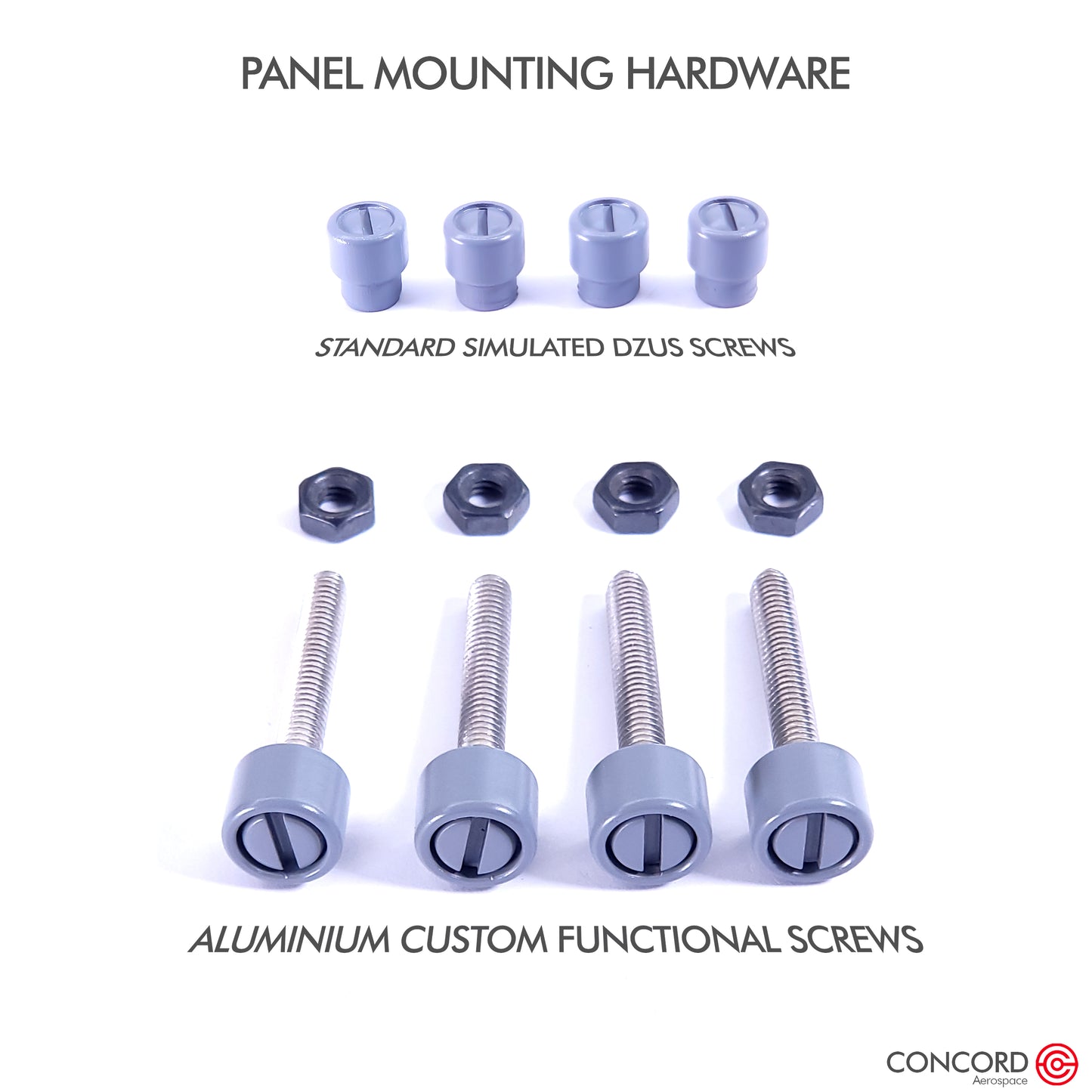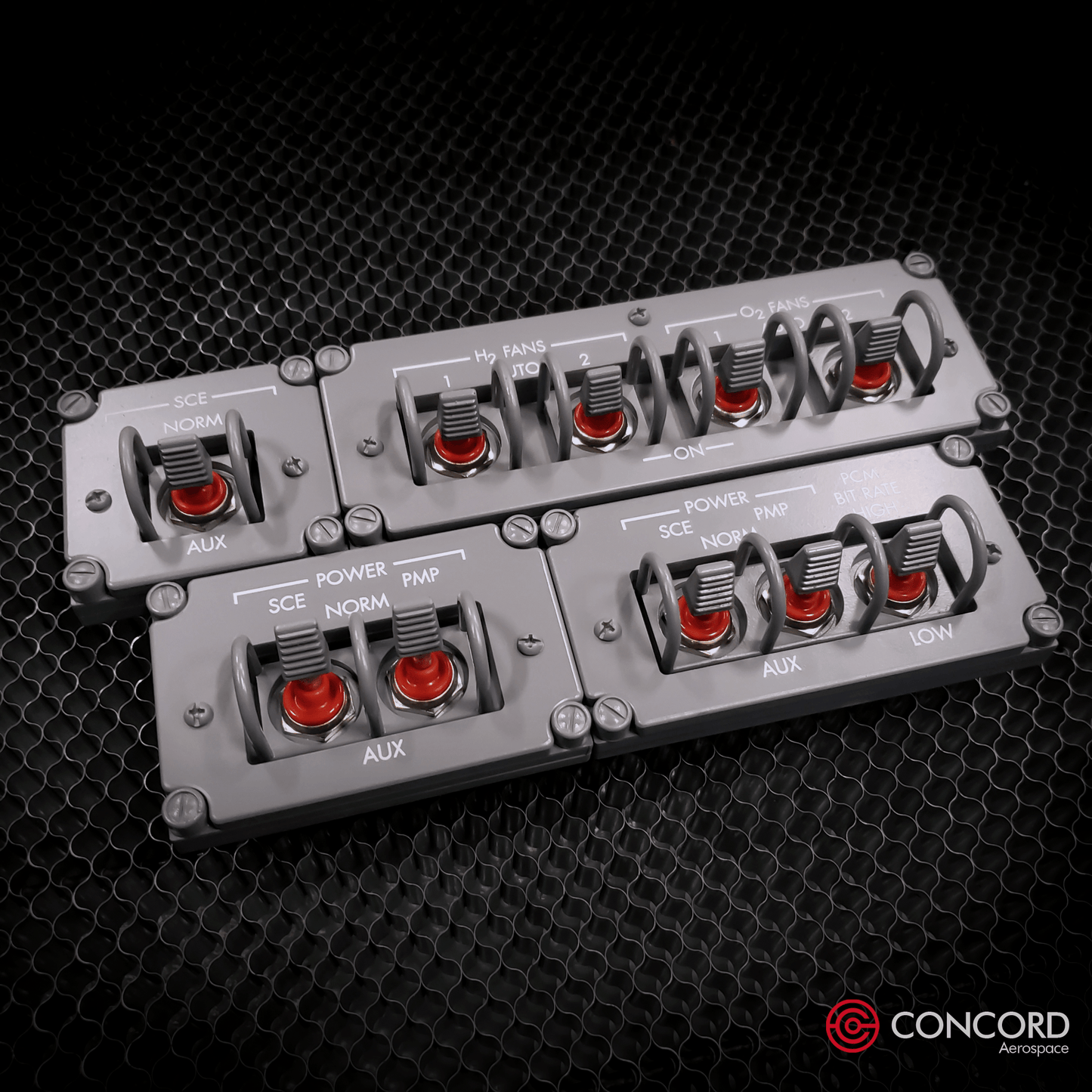APOLLO13 COMMAND MODULE H2/O2 FANS QUAD SWITCH PANEL
APOLLO13 COMMAND MODULE H2/O2 FANS QUAD SWITCH PANEL
Couldn't load pickup availability
APOLLO COMMAND MODULE H2/O2 FANS QUAD SWITCH PANEL
NEW!!! 4 x UPGRADED INDUSTRIAL SWITCHES INCLUDED - $40+ VALUE
Introducing the infamous Apollo Command Module H2/O2 Fan Panel - an unparalleled tribute to the iconic components that graced the Apollo missions to the moon. Crafted with meticulous attention to detail, our reproduction stands as the pinnacle of authenticity and craftsmanship.
Not merely replicas, these panels boast fully functional control switches, faithfully recreating the operational essence of the original module. Whether proudly displayed to honor humanity's journey to space or integrated into DIY projects, cars, and various ventures, these panels serve as a testament to your passion for space exploration.
Our panels also make exceptional gifts for space enthusiasts and collectors, offering a unique and cherished piece of space history. Each unit is meticulously constructed using the same rigorous processes and top-grade materials employed in producing the original Command Module components, which evolved into the current Boeing and Airbus aircraft panels, establishing them as robust industrial control units. Elevate your space-themed endeavors with this exceptional piece of engineering designed to meet the highest standards of quality and precision.
TECHNICAL DETAILS:
🌕 Multi-layer switch assembly for optimal performance.
🌕 NEW UPGRADED INDUSTRIAL SWITCH - WATERPROOF
🌕 4 X Robust, operable toggle switch (20A-125VAC / 15A-250VAC) for reliability under demanding conditions.
🌕 SPDT (ON-OFF-ON) Switch Configuration for versatile control options.
🌕 Precisely sized switch guards and bezels ensure a true-to-life representation.
🌕 Custom-crafted toggle red switch boots for a distinctive touch.
🌕 Reproduction DZUS for heightened visual authenticity.
🌕 New Mounting Kit upgrade add-on for easy installation.
🌕 Compact and modular dimensions of 7.5" x 3" x 3" for seamless integration into any setting.
🌕 Designed and manufactured in Orlando, FL, USA.
H2/O2 FAN PANEL HISTORY - APOLLO 13
On April 13, 1970, while traveling 205,000 miles from Earth toward the Moon, an explosion rocked the Apollo 13 spacecraft, putting the lives of astronauts James A. Lovell, John L. Swigert, and Fred W. Haise in jeopardy. Their goal of accomplishing the third human lunar landing was quickly abandoned. The astronauts, with the help of engineers and controllers in Mission Control at the Manned Spacecraft Center (MSC), now the Johnson Space Center in Houston, stabilized their spacecraft and, using their Lunar Module as a lifeboat, as well as through judicious use of onboard resources, successfully splashed down in the Pacific Ocean on April 17.
Less than two minutes before the explosion, Mission Control requested that the astronauts turn on the O2 and H2 fans in all four SM tanks to properly mix the cryogenic liquids. They had stirred the oxygen tanks on two previous occasions during the mission with only erratic pressure readings, but this time, likely due to the damaged Teflon insulation, a short-circuit occurred, triggering a spark and resulting in a combustion event. The pressure tank lost integrity, and the oxygen escaping at high velocity caused the panel covering bay 4 to be blown off. This event also damaged the spacecraft's high gain antenna at the base of bay 4, accounting for the temporary loss of telemetry and either the oxygen tank itself or its plumbing, resulting in the slow loss of pressure. Without oxygen, the fuel cells could no longer generate electricity. Ground tests conducted for the Review Board confirmed these conclusions.
"Houston, we have a problem" is a famous but erroneous quotation from the radio communications between the Apollo 13 astronaut John ("Jack") Swigert and the NASA Mission Control Center ("Houston") during the Apollo 13 spaceflight, as the astronauts communicated their discovery of the explosion that crippled their spacecraft.
The words actually spoken, initially by Jack Swigert, were, "Okay, Houston, we've had a problem here." After being prompted to repeat the transmission by CAPCOM Jack R. Lousma, Jim Lovell responded, "Ah, Houston, we've had a problem."
DISCLAIMER
By accessing, purchasing or utilizing any product & services provided by Concord Aerospace, the client acknowledges and accepts that such utilization is subject to the client's own judgment and at their own risk. The client fully assumes all responsibilities for any installation, maintenance or use of these products. The client understands that any installation or use of these products may pose risks, including but not limited to the risk of electrical shock, injury, or damage to equipment and the installation environment. In applications that require power, it is recommended that a professional installation be carried out to minimize any risks of injury or damage resulting from improper installation or use of all Concord Aerospace products.
SHARE APOLLO13 COMMAND MODULE H2/O2 FANS QUAD SWITCH PANEL
